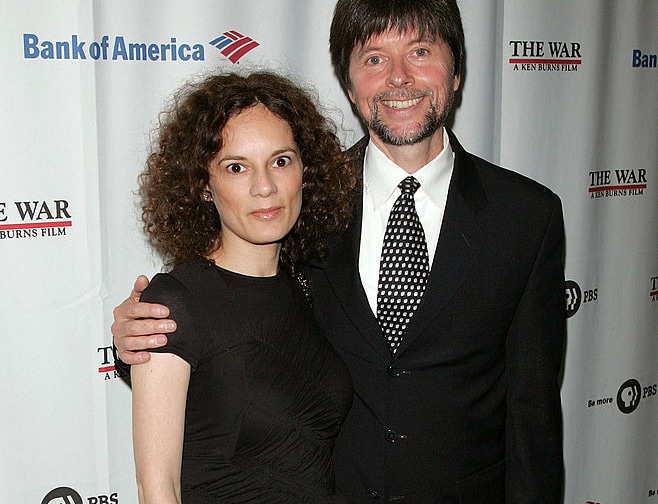
Ken Burns, arguably America’s top documentary filmmaker, is tackling America’s role in the Holocaust in his latest film series.
Burns, who isn’t Jewish, has been married to two Jewish women. He has two children with his first wife, Amy Stechler (who is also a documentary filmmaker), they divorced in 1993. In 2003, Burns married another Jewish woman, Julie Deborah Brown.
Burns shot to the spotlight in 1990 with the release of his nine-part film series on the Civil War.
The theme song to the series, “Ashokan Farewell,” was composed and performed by Jewish fiddler Jay Ungar. The son of European Jewish immigrants, Ungar’s tune is described as a “Scottish lament written by a Jewish guy from the Bronx.”
“The U.S. and the Holocaust”
“I think it was for many, many years, a beckoning subject, something we had to deal with, something we had to confront as filmmakers of American history,” Burns explains in the opening of one of the film’s trailers.
“This story is beyond our comprehension. It’s horrifying. I won’t work on a more important film in my professional life,” he goes on to say.
“This is not another film ‘about the Holocaust,’” Lynn Novick, co-director of the film, told Jewish Insider. “This is about America’s response, America’s obligations, responsibilities, failures. What did the American people do and not do about this crisis as it unfolded?”
The film “U.S. and the Holocaust” explores antisemitism in America leading up to and during World War II. The film opens with Anne Frank and her family. Anne’s father Otto desperately tried to move his family to America before the war, “only to find,” the film’s narration says, “like countless others fleeing Nazism, that Americans did not want to let them in.” They were not given permission and had to go into hiding.
“We remind people that it’s important that these impulses are not relegated to a past historical event,” Burns told The New York Times in an interview. “It’s important to understand the fragility of our institutions and the fragility of our civilized impulses.”
“It’s the only script in which in the reading of the first draft, I broke down and cried about five times,” he told the Jewish News of Northern California.
In the end, the U.S. admitted 225,00 Jewish refugees, more than any other nation.
“This is a huge reckoning that we have to understand,” Burns said. “The U.S. brought in more people than any other sovereign nation. But if we had done 20 times that amount, we would have failed.”
G.I. Jews
This isn’t the first Jewish film for Burns, in 2018 he released a movie that focused on the 550,000 Jewish American men and women who fought in World War II.
Originally Published Sep 16, 2022 12:02AM EDT


